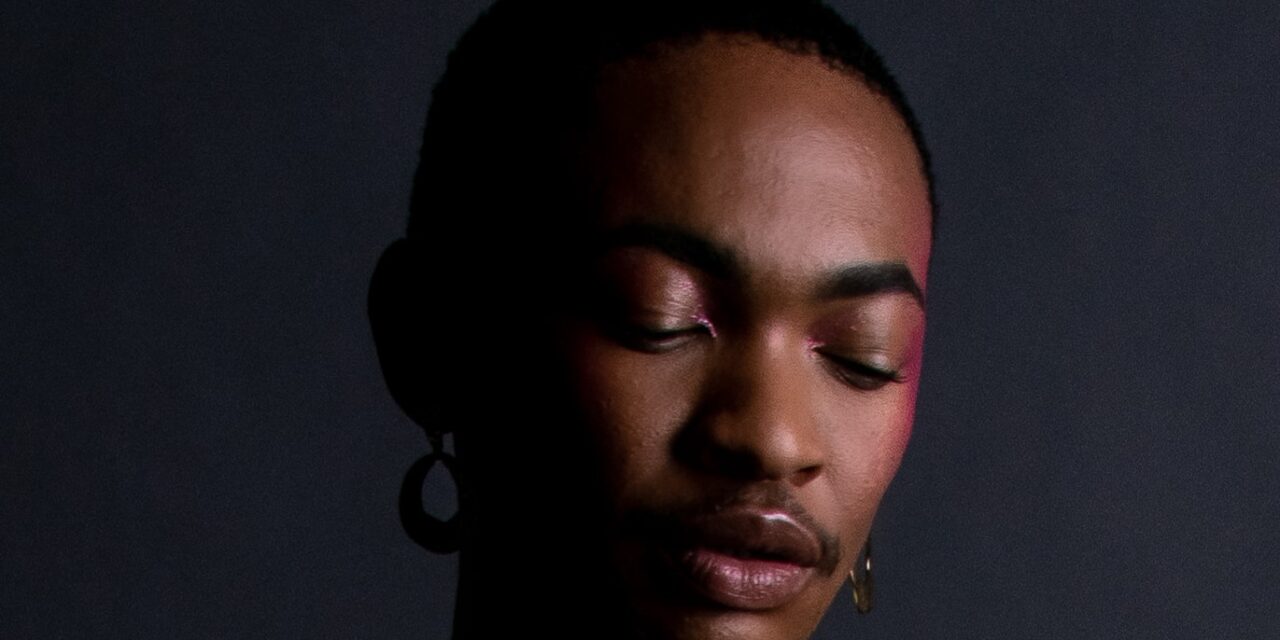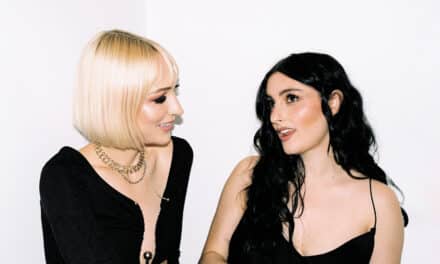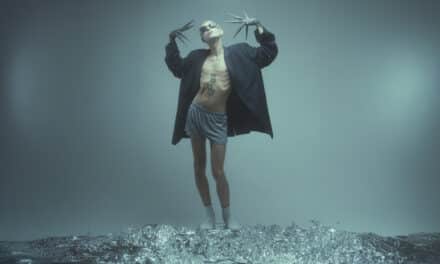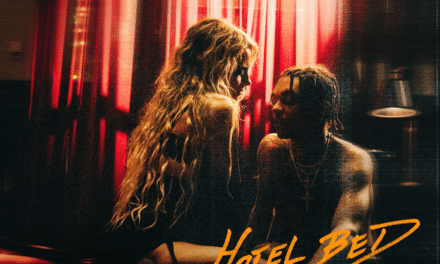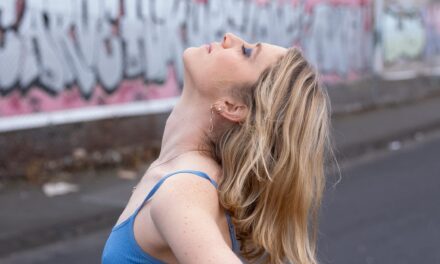MxBlouse is known for blending the sounds of rap and dance music, including house and the South African genre kwaito. The genre-fluid South African artist has performed at some of South Africa’s most popular music festivals, including Oppikoppi, Basha Uhuru, Nightscape at Design Indaba, and The Search, among others. Recently, Mx Blouse released their latest single “ICON”, which dropped last month.
GLOW is Spotify’s global initiative which launched earlier this year to elevate LGBTQIA+ voices year-round. This month, Spotify is amplifying Mx Blouseand their work through editorial, social and marketing support both on and off platform – including featuring them on as the playlist cover for GLOW, Spotify’s global flagship playlist featuring the hottest songs from LGBTQIA+ artists.
What can you tell us about “LOML”
‘LOML,’ as you are probably aware, stands for ‘love of my life’. The song is an exploration of connection in a digital reality. I often feel like social media, specifically, has made us somewhat incapable of sustaining real connections. I don’t know if it’s just my own experience but I find that because we interact so much with our friends and loved ones on social media, we see their posts all the time and it gives us this false sense of connection. So, in this song, I am talking about meeting someone and having that desire for a deeper connection, and really getting to know one another beyond the superficial.
Your latest single is titled “ICON,” which is quite a bold title. What’s the message here?
Although the song is titled ICON, it’s not really about being an icon in the true sense of the word. It’s about championing true authenticity, and I think it comes from a place of my personal realisation that I don’t really fit into a lot of traditionally accepted mainstream aesthetics, musically or otherwise. I’ve often been labeled an ‘alternative’ artist, which I find quite bizarre considering my sound is influenced by sounds that are quite popular in South Africa specifically. I’ve often been told by people they don’t know where to place me or my music. This used to make me feel like I probably need to do things differently, but the thing is, I don’t want to. So, ICON is really about accepting that, for better or worse, I’m a truly unique individual. Lyrics in the song go like “I’m not a rapper, telling you that I’m an icon…”. This is a reference to the kind of traditional, self-aggrandisement that is so rampant in rap music, and basically what I’m saying here is that people should not expect me to be like their favourite rapper because I’m not. In a way, I think the title works because certainly everyone I consider an icon did things their own way. You can’t really change the world by sticking to formulas. It might be a quick way to fame and success, but I’d be terribly bored if I conformed.
Your sound is very eclectic. What inspires it?
I love a lot of 90s and early 2000s hip-hop and R&B, but I also grew up at a time when kwaito music was the most dominant genre in South African music. More recently I got into dance music, so I try to blend all of those influences. It was really an effort to find my own sound, and I couldn’t think of a better way of doing that than mashing together the music I love.



What are some of the most influential records for you?
Kelela ‘Rewind’. Roisin Murphy ‘Let Me Know’. TKZee ‘Dlala Mapantsula’. The Fugees ‘How Many Mics’. There are plenty others, but these are a few I can think of right now.
Tell us about your partnership with Spotify GLOW. What does it mean to you?
It was quite a surprise to me. I’ve had my eye on GLOW since its launch earlier this year, and I totally wanted to be playlisted on it. There aren’t a lot of spaces afforded to queer artists where I am from, and as I mentioned before, I’m often told my music is too weird to fit into anywhere, so it’s truly an honour to find a place among other queer artists from all over the world. More than anything, it is quite validating. It gives me hope that I can remain true to myself and still get recognition.
What do you think artists can do to elevate LGBTQ+ communities in the arts and otherwise?
I think the only responsibility artists have is to be themselves. I can’t think of a better way to serve my own community other than to be myself and continue aiming higher. My guiding principle as a queer African rapper, is that the struggles I go through are necessary for the next generation of queer artists to prosper. If I can open as many doors as I can for them to have an easier time walking through, that would make me happy. And that’s what I want to do. Beyond that, I feel a responsibility, especially as a queer artist, to reject mediocrity. I want queer artists to get the same respect as everyone else, and the only way I can think of doing that is by aiming for excellence.
What’s it like growing up artistically in South Africa?
I didn’t grow up in an artistic family or anything, I’ve just always been drawn to the arts, and I have no idea why. I think South Africa can generally do better to expose kids to the arts. I was denied every opportunity to study art and music in school because I moved around so much and with every new school I went to, they would accept me into the art program because no teacher wanted to start me from scratch. Come to think of it, I only started my music journey late because my experience in school made me believe it was too late.




